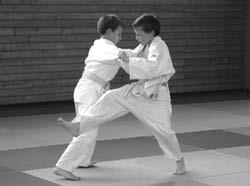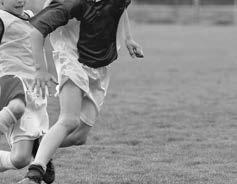
5 minute read
Look Back
1 Fill in with the words from the box. Use the correct forms of the verbs.
skills, international, foreign, improve, study, use, connect, understand, learn, listen

Learning ... languages is very important today. English is an ... language. It helps to ... people and countries. That’s why we have to ... English.
My friend Taras ... English at the International Summer Language School. Now he can speak and ... real Englishmen very well. He says we need some special ... to learn the language. It is helpful to ... and watch English programs on radio, video and television. We have to ... English when we speak with our friends, read English books, sing English songs. All these things can help us ... our English.
2 Imagine, your friend wants to get a better mark in English.
Write down some rules that he / she has to follow. There are some prompts in the box. Write in your notebook. Start like this:
He / she has to… He / she mustn’t… He / she doesn’t have to…
80

Lessons 1-2
ask the teacher to explain things the pupil doesn’t understand forget homework disturb the class listen carefully in class do what the teacher says listen to the CD that comes with this book listen to the CD that comes with this book write neatly spend at least 10 minutes studying new vocabulary each day listen to English while you are watching listen to English while you are watching fi lms or listening to music ask someone for help learn everything by heart
3 Role-play the situation in groups of 3-4.
‘Improve Your English!’ radio program is on.
Pupil A, you are the host of the program. You have to answer the listeners’ questions and advise them how to improve their
English.
Pupils B, C, D, you are the listeners. You are telling about your problems in your language study and ask for help.
4 Write a letter to your friend from another
Ukrainian city. Try to convince1 him/her that it is important to study English. Give him/her some advice on how to learn a foreign language.
1to convince [k3n9vins] — переконувати

81
5 Make up the leafl et ‘Improve Your English!’
82 a) Work in a group. Discuss these questions and write down the answers.
Can you…? Is it good to…? Is it useful to…? Should you…?
FILE FOR PROJECT
listen and sing along with English songs? read books in English? fi nd a pen friend and write to each other in English? watch fi lms and enjoy shows in English? ask your teacher to help? speak English as much as you can? study hard and do your homework? look up every new word? stop speaking when you don’t know the word? use every moment to practise English? translate your thoughts? make up shows and parties in English with your friends? act roleplays in English? start an English newspaper or a magazine with your friends? listen to English as much as you can? write new phrases or words in your vocabulary notebook? make up your own rules on how to learn the language?
b) Design the leafl et.
c) Display it in class.
Lessons 1-2
6 List your favourite sport things.
My favourite sport programme on TV is ... My favourite sport is ... My favourite sports star is ... My favourite team is ...
7 Listen, read and act out in pairs.
Terry: Here is Tom Bondarenko, our school sports expert. Tom, can you explain the difference between ‘a game’ and ‘a sport’? Tom: Football and tennis are games. We play games. Terry: But running and jumping are not games. What are they? Tom: They are sports or athletic events. When we use the word ‘a game’ we think of some kind of sports in which there are two sides or teams. Terry: I see. Tom: The high jumps and the long jumps are called fi eld events.
Running races are called track events. Terry: What is a ‘track’? Tom: A ‘track’ is the ground that has been made for running on. Terry: Thank you very much for the explanation. Tom: Not at all.
83
8 Ask and answer.
What are athletic events?
What is the difference between ‘a game’ and ‘a sport’?
What are fi eld (track) events?
What is your favourite sport?


9 Listen and learn the poem. DOING SPORTS
I like riding my bicycle, I’m fond of playing chess. My friend is good at judo — We are keen on sports as you can guess.
And every kind of sport for sure As it can even illness cure Can bring for every girl and boy So many moments of joy.
The proverb reads for everybody: ‘A SOUND MIND IN A SOUND BODY1!’
1В здоровому тілі — здоровий дух!
84







Lessons 1-2
10 Fill in the sentences with ‘and’, ‘but’, ‘so’ or ‘because’.
A 1 My friend is fond of football ... he is going to become a famous football player in future. 2 Kate can’t buy this dress ... it is too expensive. 3 I can read English, ... I can’t speak English. 4 The fi rst week we spent at the seaside ... then we went to the mountains. 5 We haven’t got any apples ... we can’t make an apple pie for today. 6 Julia is very happy ... her mother has bought her a fantastic dress for the New Year party.
B 1 We can speak to her, ... we are not sure it will help. 2 I haven’t got any brother or sister, ... I have got a wonderful friend. 3 The weather was terrible yesterday, ... they haven’t cleaned the yard yet. 4 He is a good pupil at school ... he is a good sportsman, too. 5 The footballers are happy ... they have won the match today. 6 Nobody knew about John’s plan ... everybody was surprised to hear the news. 7 Mark has fi nished his work ... can have a rest now.













